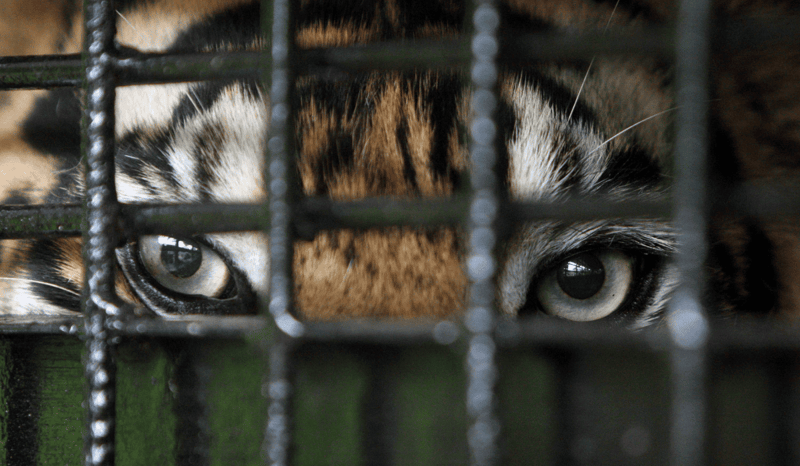
“Tiger King” Trainer Ryan Easley Killed by Tiger: A Tragic Reminder of the Dangers of Wild Animals in Captivity
Blog
“Tiger King” trainer Ryan Easley died after a tiger attack, highlighting the hidden dangers of wildlife encounters and the importance of ethical, animal-friendly tourism.
Ryan Easley, a trainer linked to Netflix’s Tiger King star Joe Exotic, was fatally attacked by a tiger at Growler Pines Tiger Preserve in Oklahoma on Sunday, September 20, 2025. This tragic incident is a stark reminder that wild animals retain their natural instincts—even in captivity—and that putting them in direct contact with humans is both dangerous and negligent.
For those who watched Tiger King, the documentary showcased the chaotic world of private wild animal ownership, but it didn’t fully capture the risks to humans or the suffering of the animals. Tigers in captivity are often taken from their mothers as cubs, forced to perform in shows, transported long distances, and confined in barren enclosures. These conditions create stress, unpredictable behavior, and tragic tiger attacks like the one that claimed Easley’s life.
As Liz Cabrera Holtz, Senior Campaigns Manager at World Animal Protection US, explains:
“Ryan Easley’s death is a tragic reminder that wild animals are not entertainment. Tigers are powerful, instinct-driven animals, and no amount of ‘training’ can make close interaction with them safe. At World Animal Protection, we are committed to ending the exploitation of wild animals in captivity and ensuring they live in sanctuaries where their welfare—and human safety—come first.”
The Hidden Dangers of Wildlife Experiences
World Animal Protection has long advocated against exploitative wildlife experiences, such as tiger petting, elephant bathing, and swimming with dolphins. These activities put profit over animal well-being and hide serious dangers, including:
- Physical Injuries: Even seemingly gentle animals, like sloths, elephants, and dolphins, can inflict serious injuries when stressed or frightened.
- Zoonotic Disease Transmission: Close contact with wild animals can spread diseases such as Salmonella, tuberculosis, and parasites.
- False Sense of Safety: Animals are never truly domesticated—conditioning and sedatives hide their natural instincts.
- Unregulated Facilities: Backyard zoos and unlicensed venues often lack proper safety measures.
A Safer Alternative: Wild Animal Sanctuaries
Legitimate sanctuaries provide space, enrichment, and care, allowing wild animals to live naturally and safely. They do not breed animals for profit, allow direct human contact, or confine animals in unnatural conditions.
Plan Your Wildlife-Friendly Vacation
World Animal Protection works with global travel companies to implement animal-friendly policies, ensuring no animals are harmed during tourist experiences. Companies such as Kodama Travel, Airbnb, Booking.com, and The Travel Corporation are just a few examples of partners that follow these policies and continue to work with our organization to update their listings.
If you have concerns or questions about a particular venue, you can contact us via email, and we’ll let you know if a venue is animal-friendly or one to avoid.
Looking for more wildlife-friendly travel tips? Visit our Wildlife-Friendly Travel Guide for more information.